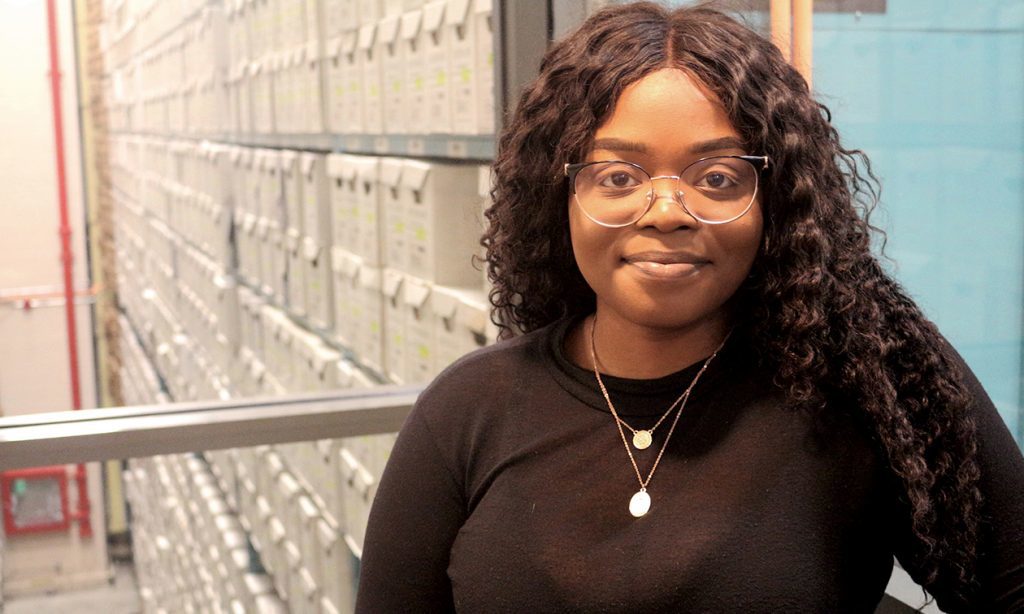
There is a conversation about race in Canada that Canadian universities are missing.
Every February comes with a flurry of hope that major establishments will finally get things right and properly celebrate black history. Every February goes with a flurry of disappointment.
Despite there being a consistent black presence in Canada since the 1600s, black Canadians are regularly and frequently omitted from the writing and retelling of history. Every Black History Month these disparities are more evident than ever.
It is no surprise that Canadian institutions persistently fail at recognizing racialized people’s contribution in the development of this country because our seat was never at the table – it was underneath it hammering down the nails.
From elementary school to secondary all the way up to post-secondary, educational institutions are neglecting to teach about and commemorate a major part of Canadian history–black history. Although black history is primarily left for the month of February, the reality is Canadian history cannot be commemorated at any time of the year without acknowledging the efforts of black Canadians.
However, systematic racism continues to perpetuate in all areas of Canadian life, including the systems that are educating future leaders.
Ryerson University’s undergraduate calendar lists over 100 history courses. Of these, only eight specify within black history and/or mention a focus on black identity. Three of the 34 history courses available during the 2019 winter semester teach black history, none of which specify in Canadian black history.
Barrington Walker, co-editor of the Journal of the Canadian Historical Association and undergraduate chair of the history department at Queen’s University, said the underrepresentation of black life in Canadian history courses is a reflection of the misrepresentation of racialized individuals in Canadian society.
“The silences that exist in the system are reflective of the status of Black (and Indigenous) people in Canadian society at large,” Walker said. “What is at work is the systemic denigration of black life in virtually all spheres of Canadian life, including the criminal justice system, policing, health care, political representation, the job market and civic life.”
The beginning of black studies in universities was kickstarted in the 1960s in connection with the black liberation movement. A number of strikes and protests demanded that black identity be taught as a formal major. Since then, black students have been working to see their histories be represented in education systems.
While some progress has been made, like Viola Desmond being honoured on the $10 bill, the teaching of black history as Canadian history itself is facing difficulties that may be more related to the underfunding of education as a whole.
“I have been teaching in universities for just over 25 years… When I started out it was mainly part-time contract faculty offering such (black Canadian history) courses,” said Walker. “It’s not that part-time professors don’t do a fine job in the classroom — they do — but it’s a difficult way to make a living and it means that it is often difficult to get the institutional commitment to teach these sorts of courses as part of the core offerings of a department.”
The only foreseeable way to rectify this is to revisit the school system from a primary level so that students can paint an accurate picture of Canadian history.
In 2008, York University launched The Jean Augustine Chair in Education, Community and Diaspora. The initiative facilitates and engages research, educational programs and partnerships that cater to the educational and social needs of black and otherwise racialized students and community members.
Despite beginning 11 years ago, it has still been unable to reach its funding goal; $1.2 million will be necessary to mobilize its initiatives.
Rosemary Sadlier, former president of the Ontario Black History Society, said it is not only the education system but also society’s job to demand and support the inclusion of all in the teaching of history.
“Black history is incredibly underrepresented and not included generally… so I think that it’s on us to support these initiatives that are furthering black history,” she said. “We have to keep fighting these images and ideas of us as not being here. And not being worthy. So any efforts that you can make towards finding a way to insert us into the conversation are so very needed.”
Josh Lamers co founded the Black Liberation Collective at Ryerson University in 2015 in solidarity with students from Missouri University. The collective runs through universities internationally combating anti-black racism in post-secondary institutions.
In 2015, the collective wrote an open letter to then-president Sheldon Levy and then-provost Mohamed Lachemi detailing a number of demands aimed at improving the experience of black students on campus.
The demands included improvements to racial awareness and inclusion, increased percentage of black tenured faculty, upper administration and full-time staff by 10 per cent and an expanded number of core courses offered that speak to the history and experience of black and racialized communities taught by tenured black and racialized faculty.
As for effectiveness, Lamers said if Ryerson wants to be seen as a school of innovation and progression, it needs to do a lot more to facilitate the safe and equitable learning of its racialized students.
“History for us is a guide, but also a guide away in some ways because we look to see in what ways things did and did not work and who is and isn’t present,” he said. “There is a deep and rich history of black people black resistance and black scholarship throughout Toronto and throughout Canada. But at the same time, this is a university that does not take seriously the need to address anti-black racism or provide courses and content and faculty positions that are specifically for black folk and black thought and black scholarship.”

